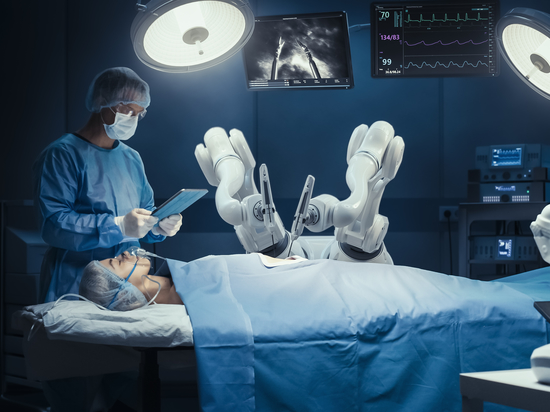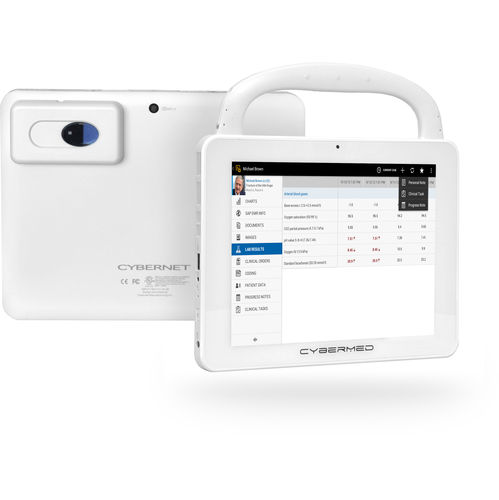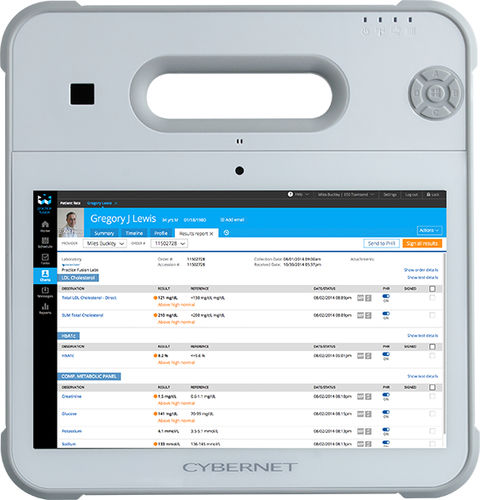
#Industry News
How Can Computer Science Help Find New Treatments in Medicine?
Computer Science's increased role in healthcare
Computer science has massively impacted today's world, from landing men on the moon to running factories without human assistance. The healthcare industry is no exception, applying computer science for pursuits like drug discovery to artificial intelligence in medical research and development.
What is Computer Science
Computer Science, or simply CS, is the study of computers and computational systems. Unlike electrical and computer engineers, who focus on hardware, computer scientists deal mainly with software and software systems like those run on healthcare computers: their underlying computational principles and theories, software-hardware interactions, and computers' impact on society.
Subject matters one can find CS are numerous:
Artificial intelligence (see below)
Computer systems and networks
Cybersecurity
Database systems
Human-computer interaction
Numerical analysis
Programming
Software engineering
Theory of computing
Vision and graphics
Role of Computer Science in Medical Research
Medical researchers primarily use CS to process large datasets. One example is the electronic medical records (EMR) generated by hospitals and health facilities. Another dataset is the vast number of substances and their combinations used in drug discovery by the pharmaceutical industry.
Once researchers have done processing these datasets, computer science can also be applied to:
Analyze biological data, such as protein structures and DNA sequences. From there, researchers can predict gene function, which could lead to new gene therapies and medicines.
Identify pathogens, follow their patterns throughout the populace, and predict possible outcomes. Computer scientists can take the results to populate computer simulations and model scenarios to help test hypotheses of new treatments more efficiently.
Draw upon the EMR and other health records like discharge summaries to produce new medicines, design treatments, and conduct clinical trials.
Gather, examine, and respond to population data, such as emergency department usage by the economically disadvantaged. The results can then be used to develop public healthcare policy.
Computer science is also used extensively outside medical research, thanks in part to the digital transformation of healthcare. Web portal development, mobile healthcare apps, wearables, medical device and equipment design, and telemedicine can trace their development back to CS.
Impact of Artificial Intelligence on CS and Medical Research
AI focuses on machines performing tasks that only humans can typically do: reasoning, decision-making, problem resolution, etc. It is a relatively new field in computer science. Computer scientists are leveraging AI computers in medical research in various ways.
Precise Diagnoses: Providers gather vast amounts of information on their patients, from their symptoms to test results to medical history. AI can analyze such complex medical datasets, aiding providers in making more accurate diagnoses while reducing the risk of misdiagnosis.
Personalized Medicine: Computer scientists have designed AI systems to sort patient data based on individual genetic, lifestyle, and environmental factors. The AI can then recommend tailored treatment plans based on the results.
Medical Imaging: AI algorithms can analyze medical images, such as X-rays and MRIs, to detect abnormalities far faster and in greater detail than a flesh-and-blood radiologist. Coupled with computer-aided diagnosis, such computers may free the specialists to handle more complex cases.
Predictive Analytics: AI-ready PCs can sort patient data to identify patterns and predict potential health issues. Healthcare providers can then take preventative measures to ensure their patients' longer and more productive lives.
Virtual Assistants: Computer science tailors AI-powered virtual assistants (VAs) like the popular ChatGPT to provide patients with personalized healthcare information and guidance. The healthcare industry hopes such VAs will reduce the burden on healthcare professionals and prevent physician burnout.
Powering Computer Science Through Cybernet Computers
Computer science (CS) is an interdisciplinary field that explores the intricacies of computers and their profound impact on society. One fascinating area of application is in medical research, where CS plays a vital role in managing complex datasets and harnessing the power of artificial intelligence (AI). Today, the applications of CS are vast, particularly in the healthcare sector, where it supports everything from the discovery of innovative medicines to advancements in medical research and development.
AI, emerging as one of the most exciting branches within CS, boasts numerous applications in enhancing patient care and treatment protocols.
If you're searching for reliable computing solutions for hospitals and medical clinics, consider contacting the Cybernet Manufacturing team. They specialize in crafting computers specifically designed to meet the unique demands of the healthcare environment. Cybernet's All-in-One devices and medical tablets are built to medical-grade standards, ensuring safe usage around patients and minimizing interference with other medical equipment. Their innovative fanless design enhances reliability, while the sealed front bezel, which boasts an IP65 rating, facilitates frequent cleaning—a necessity in the healthcare industry.
Additionally, if your organization wants to integrate artificial intelligence, explore Cybernet's lineup of AI-ready PCs. These machines are engineered to exceed your expectations, providing robust performance tailored to the evolving needs of modern healthcare.








